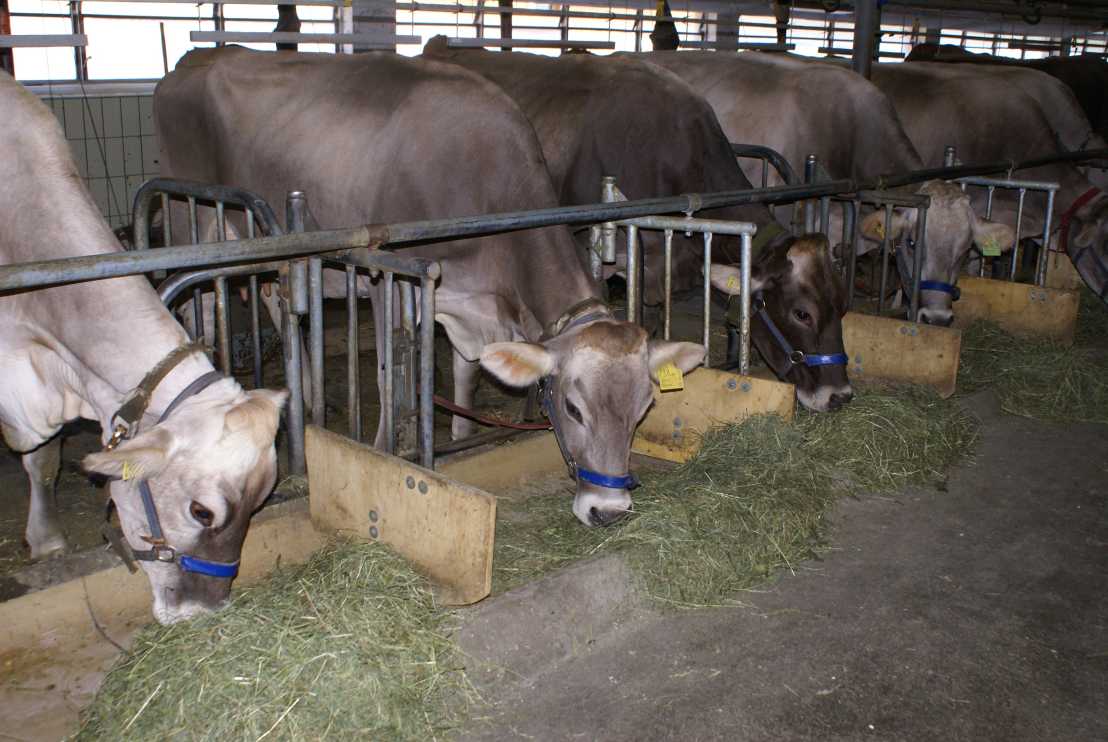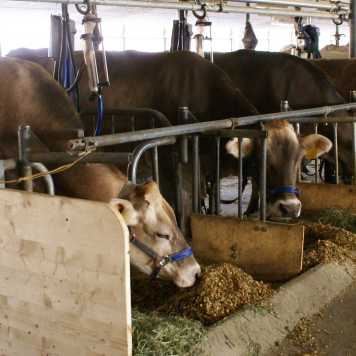The advantages of longevity in cows: New study from LLC project
Focusing on the energy turnover in cows as they age, a new study published in Animal from the WFSC member group Prof. Michael Kreuzer shows older cows use their energy more efficiently for milk production.

A high-yield strategy for dairy production systems, characterized by high milk yields over just a few years, is the dominant approach used globally. Dairy cows thus have a very short productive life (often <3 years) and require a highly concentrated diet. The WFSC Research Programs project “Greenhouse Gas Emissions of Dairy Production Systems based on Longevity and Zero-Concentrate Strategy as Compared to Conventional Systems” (LLC) compares a high-yield strategy to a longevity approach that reduces the need for feed concentrates and extends the productive life of cows by several years, with a focus on both environmental aspects and economic performance.
In a new study published in Animal, lead author Florian Grandl focuses on the changes taking place with age in energy turnover of dairy cattle. To do so, the energy balance was measured for 30 lactating Brown Swiss dairy cows aged between 2 and 10 years.
What the team of researchers found is that older cows retain more energy in the body and utilize metabolizable energy more efficiently for milk production. The researchers state that findings support the approach to increase longevity in dairy cattle.
Read the full article from the team of authors at ETH Zurich, Justus-Liebig University, University of Zurich, and Agricultural Education and Advisory Centre in Animal external page here

The paper is an output of the WFSC Research Program project “Greenhouse Gas Emissions of Dairy Production Systems based on Longevity and Zero-Concentrate Strategy as Compared to Conventional Systems” (LLC). For more information on the project, visit the project page